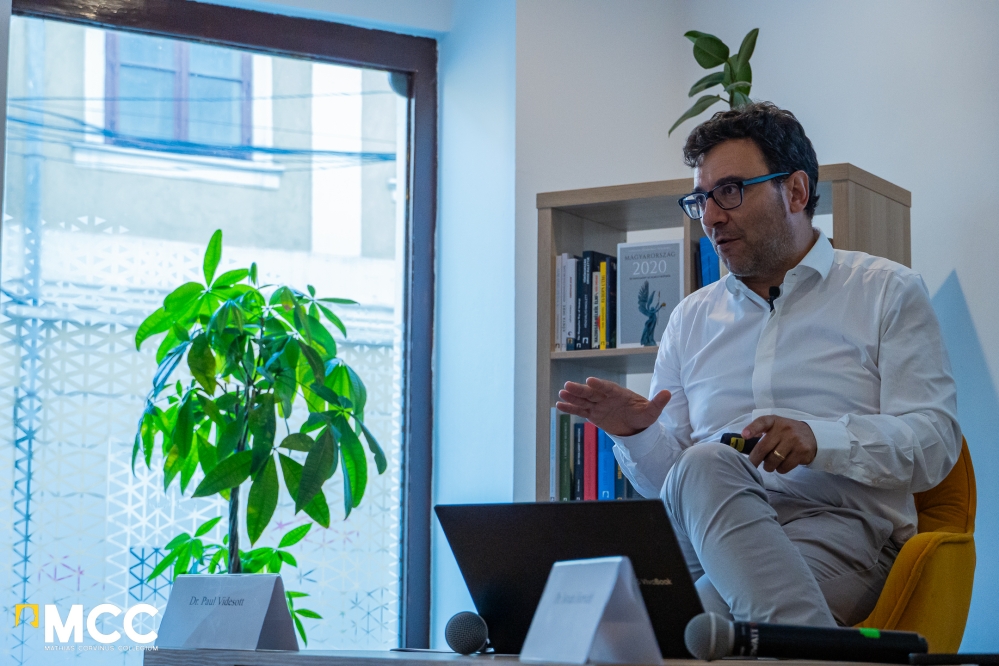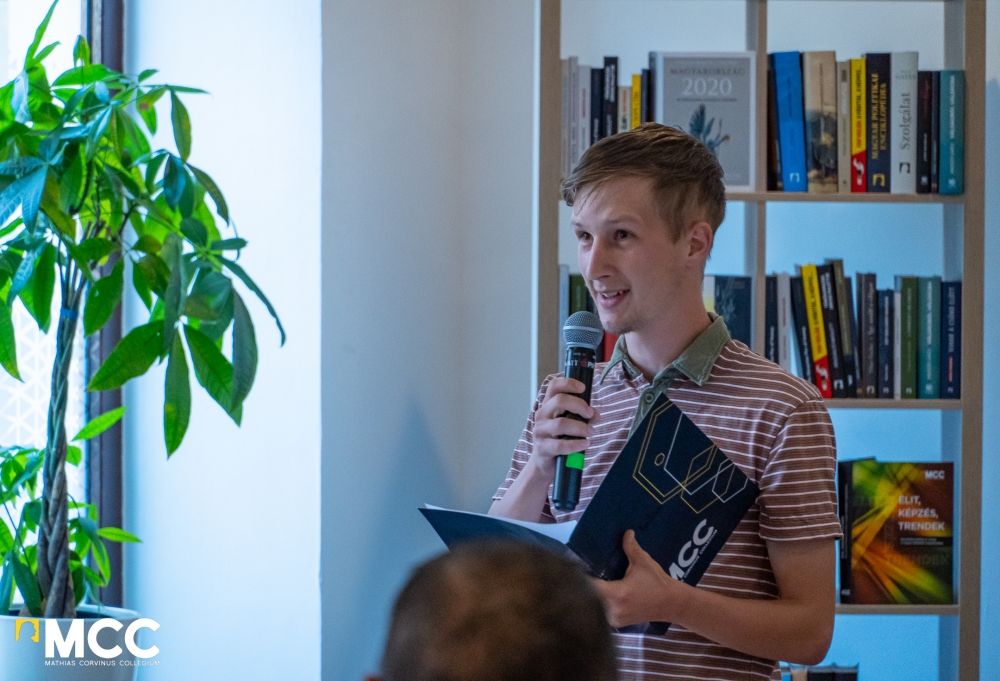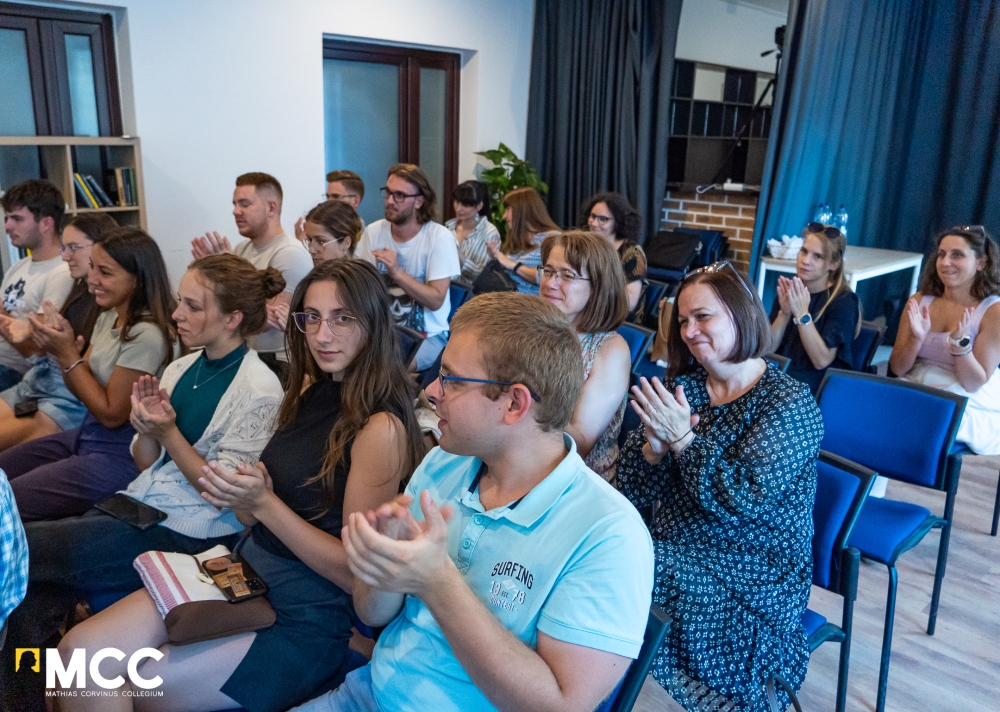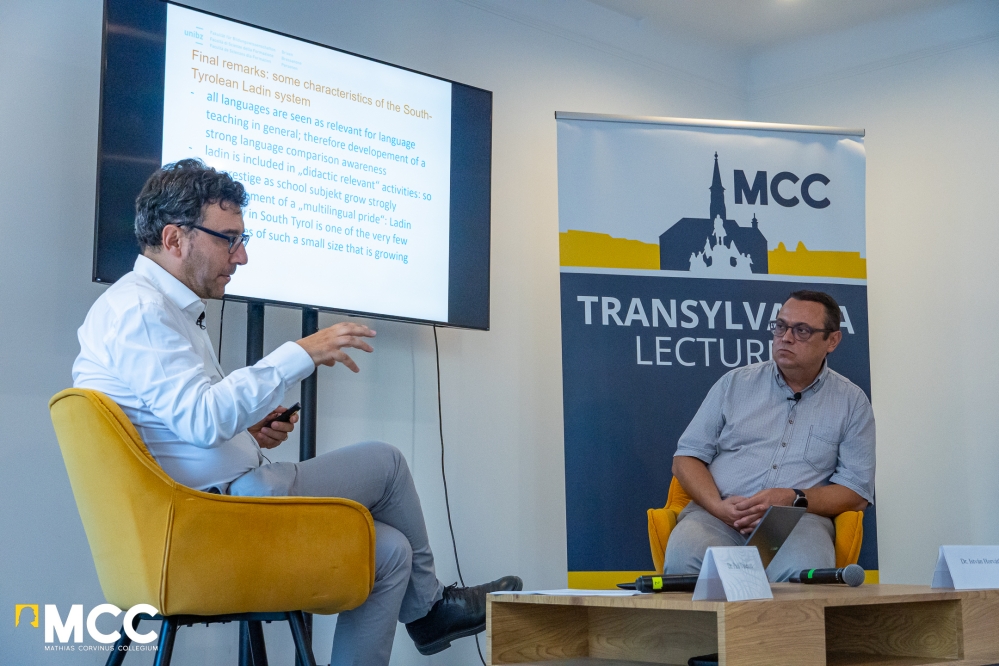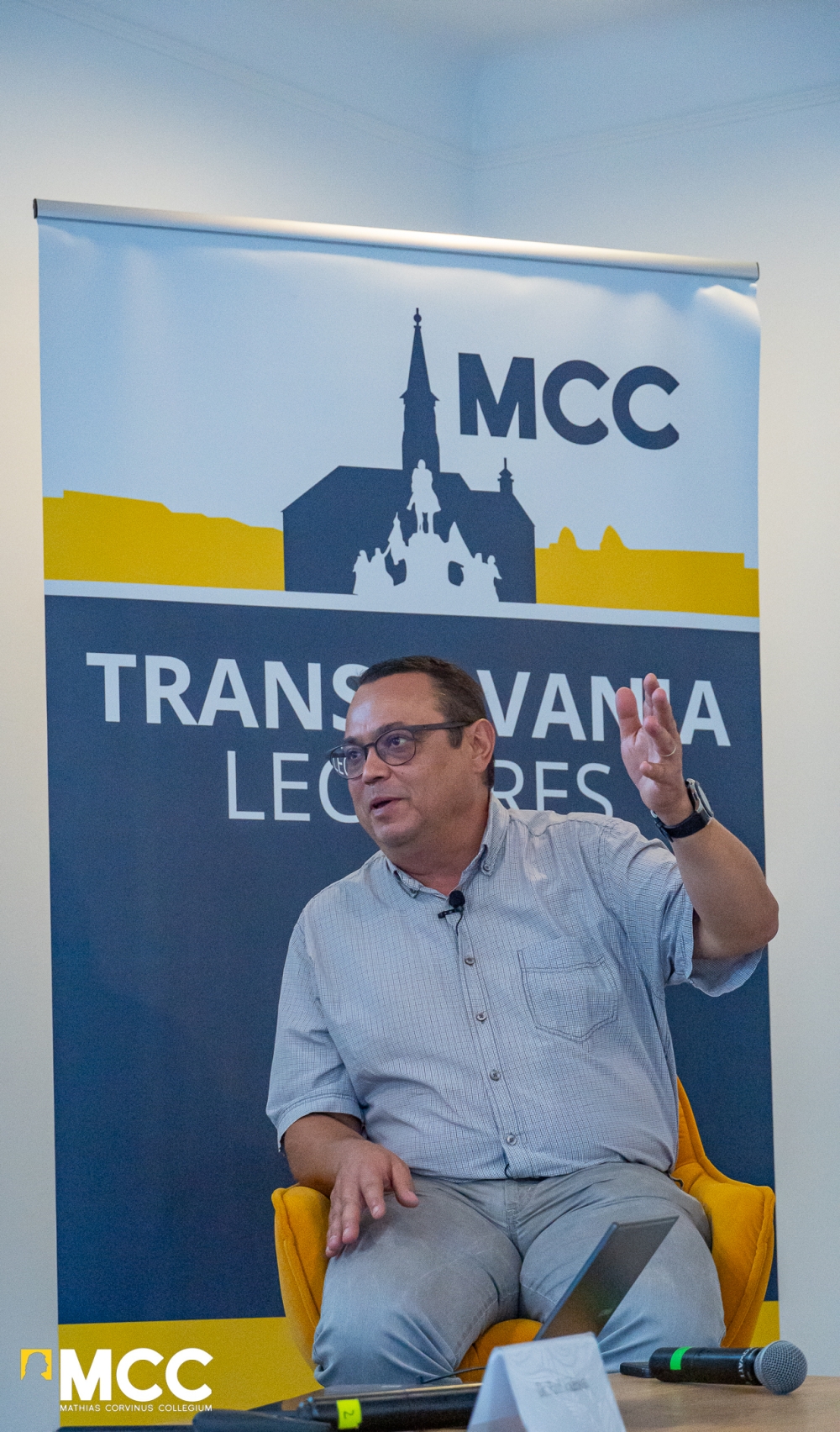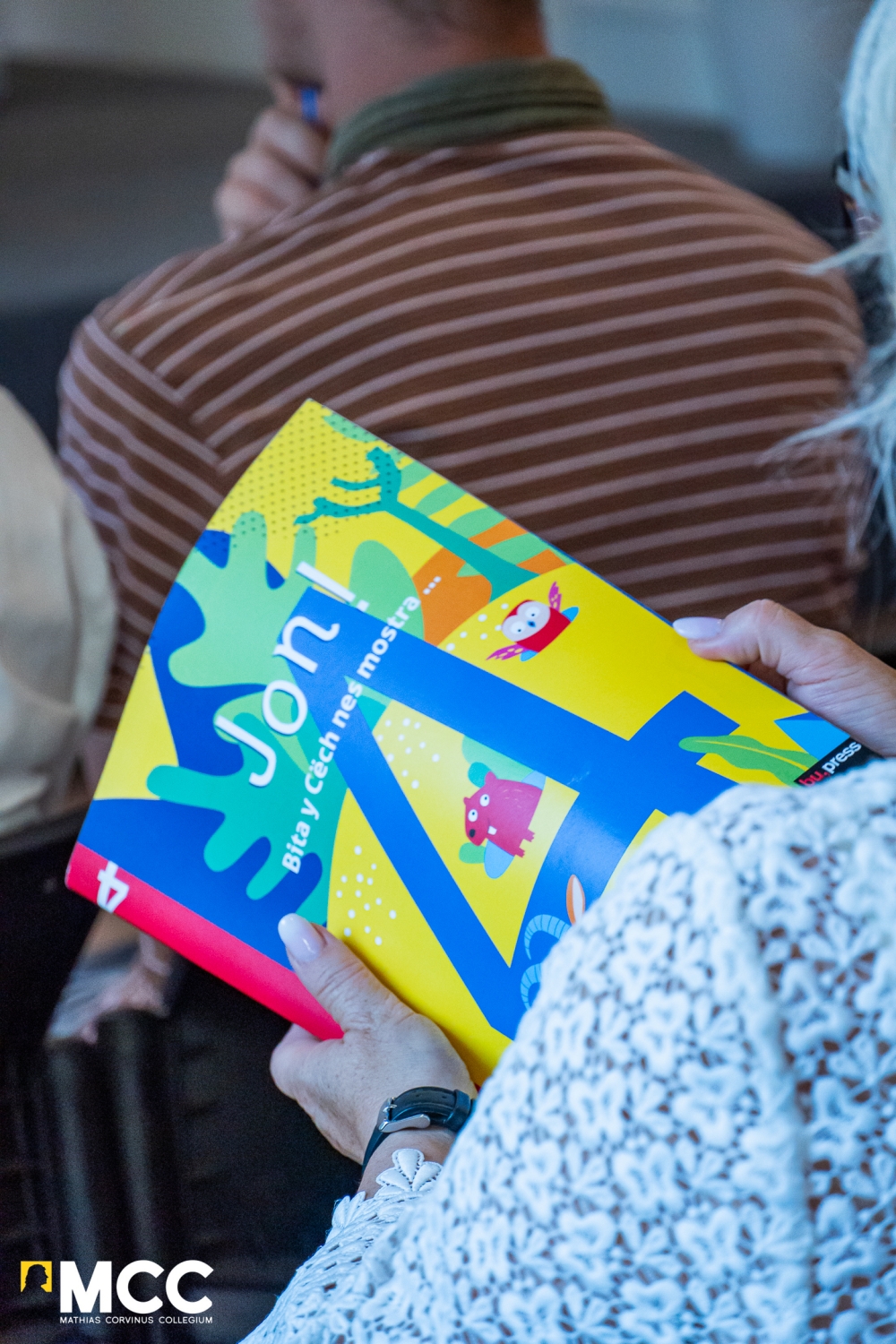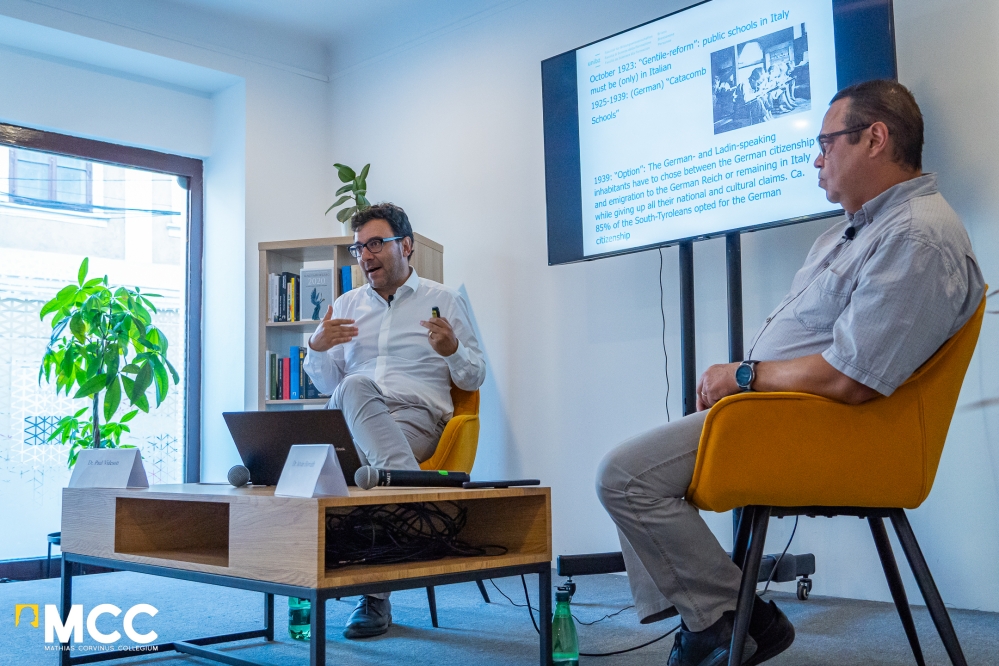Reading time: 3 minutes
Dr Paul Videsott, Dean of the Faculty of Education of the Free University of Bolzano/Bozen (UNIBZ) and editor-in-chief of the European Journal on Minority Issues, presented the Ladin minority’s education system and the complex methodology of language learning in South Tyrol at the latest Transylvania Lectures. He spoke with sociologist Dr István Horváth on 11 September at the Mathias Corvinus Collegium (MCC) Center in Kolozsvár/Cluj Napoca.
According to the presentation by South Tyrolean expert Dr Paul Videsott, three things are key to successful language learning: strong motivation, active practice and an inclusive environment. He stressed that intention is not enough if the much needed extra-curricular work is not built into the process. He also pointed out that for the Ladin-speaking community of around 30,000 people, survival is the main driving force. For them, learning languages is not optional, but an essential tool.
After the general introduction, Paul Videsott gave a brief historical overview of the Ladin's relations with Austrians, Italians and Germans and gave the audience an insight into the process of getting to the current state of autonomy. He explained that Ladin is an ancient language that existed only in oral form for a very long time. The first grammar book combining the different dialects was written in the 19th century, but it was never put into practice. It was only adopted as an official language at the end of the 20th century, and the Ladin people have been treated as Italians or Germans, depending on who was in control of the political sphere. There have even been instances of legal measures giving Ladins the choice between remaining in their homeland as Italians or emigrating to another country as Germans. But despite all the obstacles, they managed to preserve their culture and identity.
In the next part of the lecture, Paul Videsott presented the current structure of the school system in South Tyrol, divided into German, Italian and Ladin schools. The Ladin institutions have a unique approach to education: languages are not optional subjects, but Italian, German, Ladin and English are all compulsory from a young age. From kindergarten onwards, all four are used in parallel and the language of teaching changes from week to week. School teachers are locals, they are required to know the four languages, and students learn to write in all four of them at the same time using a combined alphabet. The Ladin one is the only university in Europe to award degrees in four different languages.
The expert also brought to the lecture a set of reports that proved the effectiveness of the system. Surveys show that multilingualism does not hold back young people, and that students perform better than other local groups, while statistics show that the Ladin population is on the rise in the autonomous region, in contrast to other European minorities. Paul Videsott believes that this system also helps strengthen the Ladins’ sense of national identity, which is a good driving force and helps the minority in taking on a central role in the region.
After the presentation, Dr. István Horváth, sociologist and professor of the Hungarian Institute of Sociology and Social Work of the Babeş-Bolyai University, discussed with the guest and the audience had the opportunity to ask questions. In response to the audience's interest, the speaker noted that five dialects are distinguished, but from a legal point of view there is only one Ladin language. He pointed out that, in addition to German and Italian, each institution produces its official documents in its own dialect of Ladin, and even adapts its textbooks to the local dialect. The question was raised as to what happens if a vacant teaching post cannot be filled by a candidate of Ladin origin. Paul Videsott testified that there was no precedent for this. He explained that the teaching profession is thought of as a prestigious profession, therefore, anyone who graduates from teacher training in college will surely find a job.
